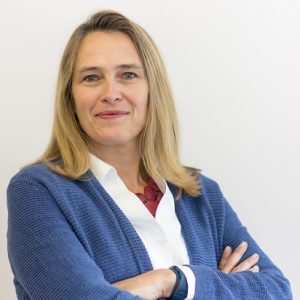Don’t Let Risk Get in the Way of Big Bets

With the right approach, smart risk taking can help funders achieve even greater impact.
 As philanthropy seeks to achieve more impact with its investments, many funders are neither adequately defining their appetite for risk nor implementing risk management policies and practices accordingly. This can result in unexpected challenges during project implementation that compromise impact, but more often, it means funders shy away from taking on initiatives that could offer big payoffs because they are unclear about their own risk appetite and mitigation strategies. Calculated risk taking is essential to the success of philanthropy, and fear of risk should not stop a funder from making those big bets. Instead, smartly exploring those risks can, in many circumstances, lead to innovation, unexpected benefits, and outsized impact.
As philanthropy seeks to achieve more impact with its investments, many funders are neither adequately defining their appetite for risk nor implementing risk management policies and practices accordingly. This can result in unexpected challenges during project implementation that compromise impact, but more often, it means funders shy away from taking on initiatives that could offer big payoffs because they are unclear about their own risk appetite and mitigation strategies. Calculated risk taking is essential to the success of philanthropy, and fear of risk should not stop a funder from making those big bets. Instead, smartly exploring those risks can, in many circumstances, lead to innovation, unexpected benefits, and outsized impact.
Last year, Arabella Advisors partnered with Open Road Alliance—a leader on the topic of risk—to convene a diverse group of individuals across the social sector, including representatives from foundations, nonprofits, impact service providers, and philanthropic associations, as well as nonprofit attorneys and wealth advisors. We developed a Risk Management for Philanthropy Toolkit that funders can use to determine their appetite for risk and to align their risk management policies and practices accordingly.
Through this experience and our own recent work with funders, we’ve identified three ways to be smart about taking risks:
Clearly define your overarching goal. Gaining clarity about what you are trying to achieve helps you determine whether the potential rewards are big enough to justify the risks. It also allows you to consider the different paths you could take to achieve this goal and which ones can mitigate the risks. It may also help you uncover an innovation that may not otherwise have surfaced.
One funder with whom we work was sponsoring scholarships to summer camps for children with diabetes when it learned that many of the camps lacked adequate insurance—a clearly risky situation given the children’s health needs. Walking away from those camps would have done little to help the children. So instead, we worked closely with our client and the programs to understand the challenges they had in obtaining insurance and helped them get the coverage they needed now and in the future. By keeping its goal firmly in mind and being willing to mitigate risks that stood in the way, the funder was able to be smarter about its investment, solve a larger challenge, and ensure it would achieve its desired impact for these camps and the children who attend them.
Cultivate open information flow. Encouraging transparent conversations both within your organization and with grantees will allow you to better understand the potential risks, how likely they are to occur, and how you can partner to mitigate them. In fact, participants in the Open Road convening discovered that open conversations between funders and grantees about the potential risks of each project are critical to protecting impact.
For example, one foundation in the process of concluding its grant making approached us with a desire to make big-bet grants with long-term impact to secure its legacy. This funder wanted to help underserved populations access high-quality health care, and it pinpointed a clear market gap: local community clinics and health care service providers that were attempting to meet these populations’ needs lacked the capital to invest in the latest health care technology and advances. The funder identified a community development financial institution (CDFI) that could help it make critical investments in nonprofit, mission-driven health care providers that serve vulnerable populations. Rather than making a one-time, multi-million-dollar grant, the funder sought our help to connect with the CDFI to make sure the organization would be able to scale its efforts to successfully reach the population the funder wanted to help. By conducting in-depth due diligence on the CDFI and opening a conversation before decisions were made, the funder developed a creative, multi-tranche grant structure with specific milestones tied to each new deployment of cash. This early transparency and discussion with the CDFI helped the funder obtain better information, calibrate the risk and reward of this investment, and take a smart risk by investing in an innovative solution that would have outsized impact.
Obtain the right expertise. None of us has all the knowledge needed to identify and manage all the different types of risks that could arise, so it makes sense to tap experts to help you recognize and characterize potential challenges, the likelihood of them occurring, and options for mitigating them. Doing so will position you to take carefully calculated risks for innovative philanthropy.
For instance, a group of funders approached us to help improve girls’ education in Afghanistan by constructing a girls’ school. To achieve this goal and minimize risk along the way, we helped the funders partner with local experts who were knowledgeable about local laws and regulations and could advise us accordingly. As a result, the funders learned about the importance of obtaining insurance and allowing for extra time in the project timeline to build relationships in the community before any construction started. The local experts’ advice positioned the funders to mitigate unforeseen legal, compliance, and other risks.
A smart approach to risk taking allows funders to proactively address and manage risks, find new solutions and ensure sustainability, and ultimately achieve the greatest impact with their philanthropic dollars. We encourage funders to explore the Risk Management for Philanthropy Toolkit and adopt or adapt the tools in a way that aligns with their own appetite for risk. Together we can help funders and grantees have more open conversations about the potential risks associated with projects, partner to mitigate and manage those risks, and ultimately achieve more impact.
Shelley Whelpton is a managing director in Arabella’s Washington, DC office. Shelley partners with foundations, social entrepreneurs, corporations, families, and high-net-worth individuals to catalyze change on a range of social and environmental issues. She has helped philanthropists develop advocacy and impact investing strategies, launch and incubate new social change initiatives, convene marginalized and influential voices, and collaborate with partners across sectors.
